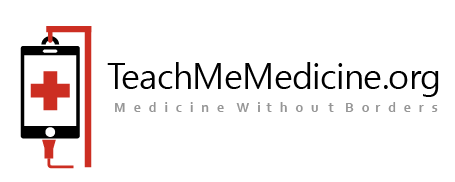Physician Assistant Program
The Physicians Assistant Curriculum is designed to help you learn and fulfill the duties of a physician assistant, such as performing physical examinations, diagnosing illnesses, determining viable treatment options, assisting in surgery, and many others. The duties of a Physicians Assistant include, but are not limited to the following:
- Physical Examinations
- Diagnosing of Illnesses
- Determination of Viable Treatment Options
- Prescribing of Medication
- Ordering and Carrying Out Therapy
- Assistance in surgery
- Suturing, Splinting, and Casting
- Disclosing of Patients’ Medical Histories
- Preventative Patient Counseling
- Hospital and Nursing Home Visitations
- Ordering of Tests and Interpretation of Test Results
We offer a comprehensive medical program for those who want to become a physician assistant that consists of two essential blocks:
Basic Sciences Curriculum includes more complex subjects, dealing directly with certain systems within the human bodies. It’s your first major step towards becoming a practicing physician assistant. The required courses here include: Anatomy and Neuroanatomy, Biochemistry, Embryology, Micro and Cell Biology, Immunology, Physiology and more. These courses were designed to go sequentially with actual in-clinic experience and we are working hard to ensure local placements for all of our students. We expect high commitment and dedication to your studies during these two years as you are expected to pass prolific exams on each subject you’ll be taking! Learn more about the program→
Clinical Sciences Curriculum is the most important step towards your medical career. During this final year of your studies you can identify the area of your specialization and we’ll assign you a dedicated mentor to help you both with the on-site local practice and theoretical guidance. You will undertake a vast range of different medical subjects including Anesthesiology, Emergency Medicine, Endocrinology, Oncology, Surgery and Pediatrics among others. The final year is going to be excitingly busy, so make sure that your studies stand on the top of your priority list! Learn more about the program→
Rural Medicine Curriculum include common medical and surgical emergencies that a clinician can encounter in a rural setting. Even though the clinical training here actually starts from the first day of medical school, this more specialized training during the final year is geared toward providing urgent medical treatment until patients are transferred to the nearest hospital. Learn more about the program →
Environmental Medicine Curriculum is designed to train rural practitioner to be able to bring clean water and proper sanitation to the areas they serve. Preventive care is a significant part of overall care in rural areas and good environmental health will go a long way in preventing many infectious diseases. Learn more about the program →
Women and Child Healthcare is a program designed to address the healthcare needs of women and children in rural areas that are too often ignored. It includes training to provide routine gynecologic care, provide well-child care visits, and make sure timely vaccination are administered. Learn more about the program→
Medical Procedures that a physicians assistant must learn, be taught while at their respective partner clinic, and be able to perform while working. The following list includes all of the medical procedure you will need to learn. You will not need to learn all of the procedures included on the list; to determine which procedures you will be taught and evaluated on, please speak with your mentor. To view the list of common medical procedures, please click here.
In order to proceed with this program, you need to successfully pass comprehensive exams based on the physician assistant program subjects listed above.
You will have full access to the course materials listed above. However, you will not necessarily be required to complete all lectures and be tested on the material. Your course supervisor will determine which of the above material you will be responsible for learning.
Practical, on-site, hands-on training will also be included for the completion of this program to instruct you better in performing the duties of a physicians assistant as described by the list above.
